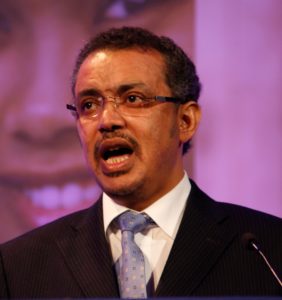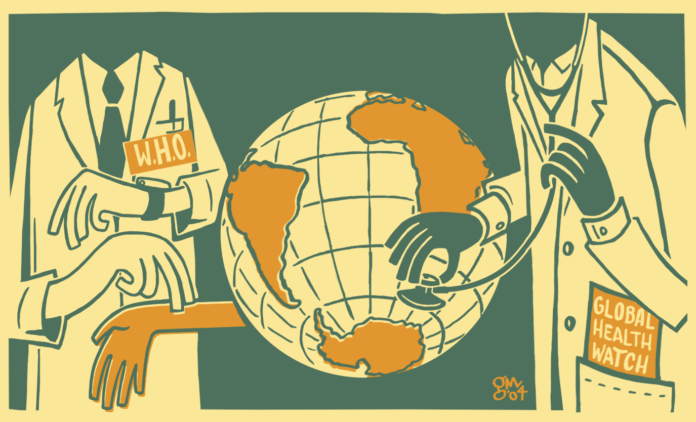
WHO director general Dr Tedros Ghebreyesus told the 142nd session of the WHO Executive Board on Monday that he would soon write to all heads of state on Universal Health Coverage.
In his first address of the new year, Dr Ghebreyesus said: “This year, universal health coverage will be the theme both for World Health Day and the World Health Assembly, as you know…This year we also plan to issue a challenge to all countries to take at least three concrete steps towards universal health coverage. I’m starting by issuing that challenge to you. We have here in the room board members and non-board members. But in the coming days, I will be sending a letter to every head of state, asking them to join the Global Challenge on UHC, the same question that I’m asking you: three concrete steps.”
The three steps he outlined are for countries to commit to concrete action towards universal health coverage, and to announce their commitments in May in the World Health Assembly; globally, to commit personnel and resources to finance their deployment in response to emergencies; and for WHO, to commit to un-earmarked funding so that countries are out at the centre to drive progress towards the Sustainable Development Goals.
In India an estimated 100 crore people have no health cover. Data from the National Health Profile, released in April this year, show that only 27% Indians – approximately 35 crore people – have health cover.
Reiterating his commitment to UHC that he had first articulated in his inaugural address at WHO while taking charge in July last year, Dr Ghebreyesus said: “I am more convinced than ever that UHC is not only the best investment in a healthier world, it is also the best investment in a safer world.”
WHO definition of Universal Health Coverage (UHC) includes financial risk protection, access to quality essential health-care services and access to safe, effective, quality and affordable essential medicines and vaccines for all. The “Tracking Universal Health Coverage: 2017 Global Monitoring Report” published last year in Lancet Global Health shows that currently, 800 million people spend at least 10 percent of their household budgets on health expenses for themselves, a sick child or other family member. For almost 100 million people these expenses are high enough to push them into extreme poverty, forcing them to survive on just $1.90 or less a day.
In India an estimated 100 crore people have no health cover. Data from the National Health Profile, released in April this year, show that only 27% Indians – approximately 35 crore people – have health cover. India has a population of about 135 crore. A health protection scheme for 10 crore people giving them a cover of upto Rs 1 lakh per person and an additional Rs 30,000 for senior citizens, has been hanging fire with the Union cabinet for the last 13 months. This despite the fact that both prime minister Narendra Modi and finance minister Arun Jaitley have committed to it in the Budget speech 2016 and the independence day speech the same year respectively.


